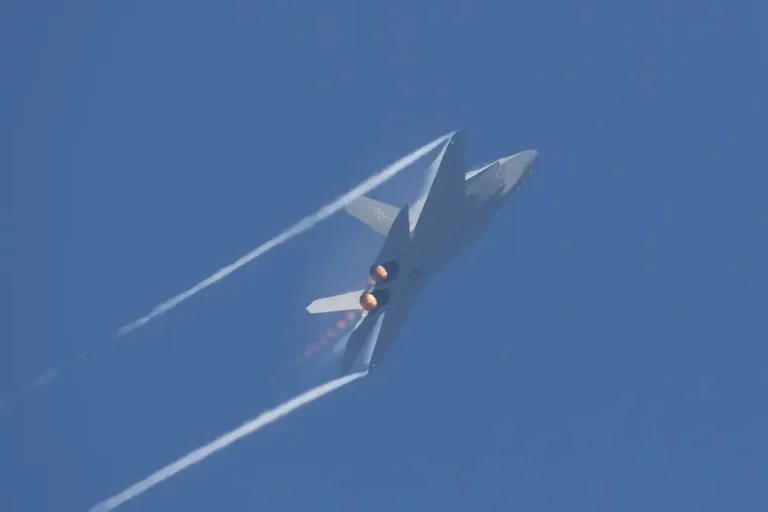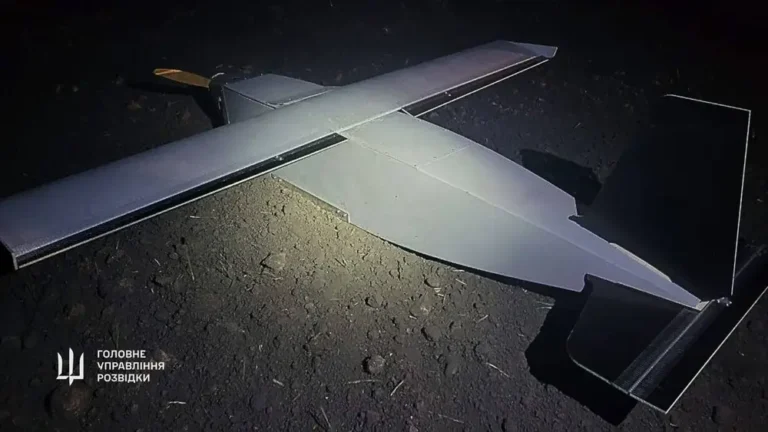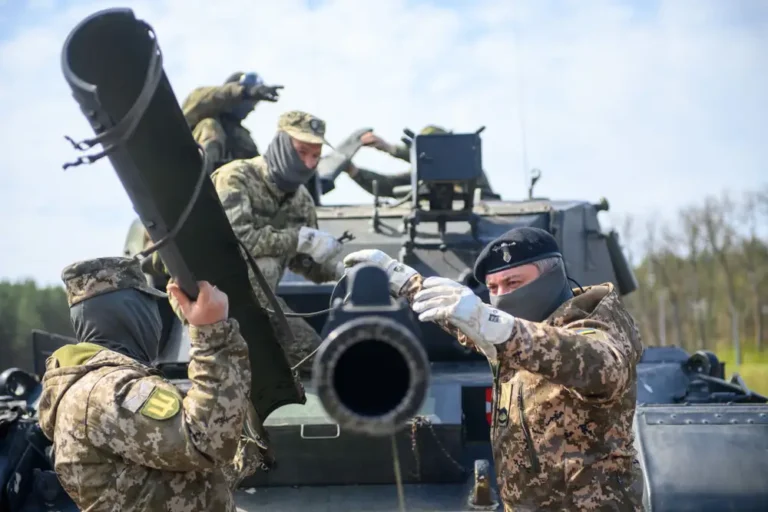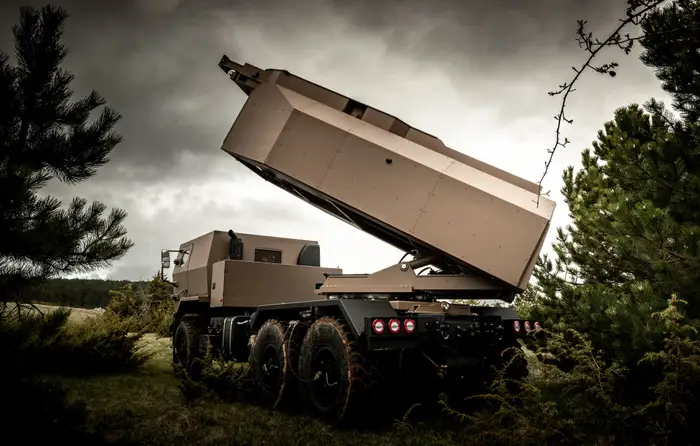China has built a giant Osprey-like drone that engineers say can carry 10 passengers and fly at 340 mph
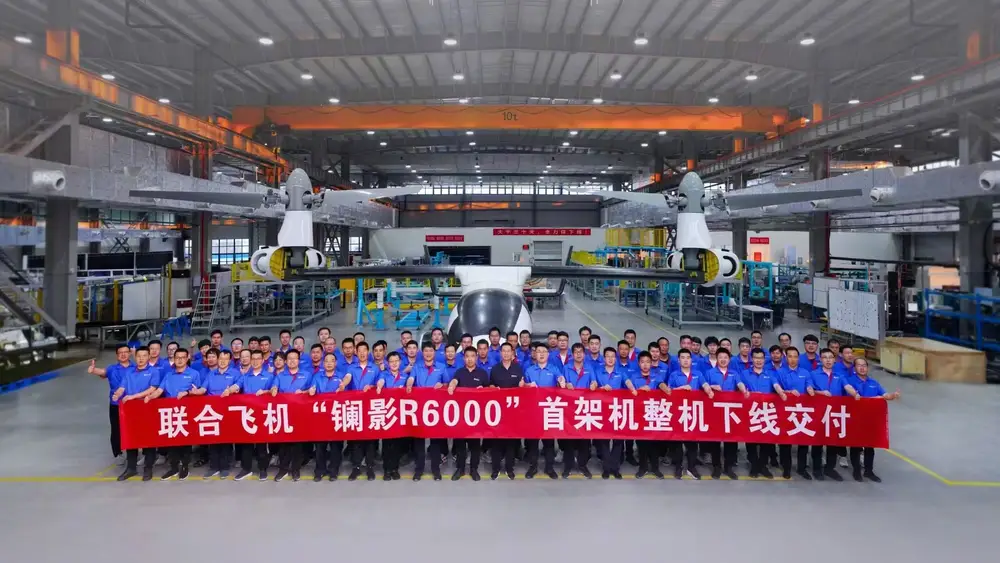
United Aircraft’s team standing before the Lanying R6000 prototype with a sign that says the drone was just rolled off the assembly lines.
A Chinese aviation firm has built the first prototype of a large tilt-rotor drone that can carry a 2-ton load, according to a local report in Anhui province.
Dubbed the Lanying R6000, the unmanned aerial vehicle is being developed by Shenzhen’s United Aircraft, which has been assembling the prototype at its workshop in the city of Wuhu.
According to a news report from the local outlet Wuhu News shared by the city’s government, the drone was completed on Friday.
The Lanying R6000, or the Lanthanum Shadow, is designed with a maximum take-off weight of about 13,000 pounds and a maximum load of up to 4,400 pounds, the report says.
Alternatively, it can take up to 10 passengers at a time, Wuhu News reported.
United Aircraft intends for the drone to fly at up to 340 miles an hour, with a maximum range of 2,400 miles and a cruising altitude of up to 25,000 feet.
What’s novel about the Lanying R6000 is that it’s a drone meant for vertical takeoff and landing, or VTOL, but with far higher speeds than helicopters — a capability among modern US military aircraft such as the Bell Boeing V-22 Osprey.
The drone’s carrying capacity, however, is far smaller than that of the Osprey, which can take 24 passengers or airlift loads of up to 20,000 pounds.
United Aircraft previously discussed its specifications for the Lanying R6000 at the Singapore Airshow in February but had provided only concept visuals.
This time, however, a photo shows the completed aircraft, with United Aircraft’s team holding a sign declaring that their first Lanying R6000 is fresh off the assembly line.
The drone’s full appearance has led to comparisons on Chinese social media to the designs of the Osprey and Bell’s V280 Valor, a newer VTOL aircraft that completed its first flight in December 2017.
The Lanying R6000 is expected to debut at the 2024 Zhuhai Air Show, which is running from November 12 to 17.
It’s unclear whether the drone is designed for military purposes. United Aircraft told reporters at the Singapore Airshow that it was preparing the aircraft for civilian jobs such as cargo or passenger transport.
Yet in its Saturday report, Wuhu News also wrote that the drone would “strongly empower multiple fields” in aviation, including emergency response and national defense.
According to United Aircraft’s website, the private UAV firm has been bidding for Chinese military contracts since 2014 with products such as its unmanned, 7-foot-long helicopter.
A promotional brochure on its website says its founder, Tian Gangyin, has “led his team on the path of military-civilian integration to strengthen the armed forces with technology and serve the nation through aviation.”
That line refers to a national strategy from Beijing to call on civilian science and tech firms for military development, cultivating a norm for private companies to work with armed forces and share research.
United Aircraft didn’t respond to a request for comment from B-17.
China has been promoting a major push for research and development in low-altitude aviation, an industry that officials hope will become a “trillion yuan” scene. Beijing has long held ambitions to turn the country into a dominant global leader in advanced technologies.
National aviation authorities said in February that the domestic industry for low-altitude aircraft was worth about $70 billion but was expected to grow to 2 trillion yuan, or about $281 billion, by 2030.

